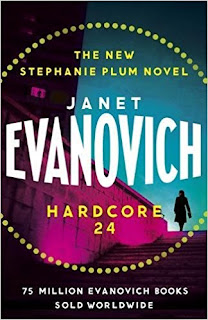Rating: 5/5
Review:
Hilarious and brilliant
This is just brilliant.
It is packed with genuinely very funny jokes and also has some very
shrewd things to say about what they signify and how they are used.
The first thing to say is that The Jewish Joke is very, very
funny. I spent a lot of time laughing
out loud and at times truly had to wait until I'd recovered and wiped my eyes
before reading on. Perhaps not one for
reading in public, then, but it's just a joy and the book is worth buying for
the jokes alone.
Devorah Baum also adds some analysis of the significance of
jokes to Jews and to other people, and she does it excellently. She takes her subject seriously but never too
solemnly and plainly loves the jokes as jokes, so her analysis is brief, witty
and insightful. I found that it really added
to my enjoyment, when clumsy, over-earnest analysis would have killed any
enjoyment stone dead. Her analysis is
very shrewd, too. She is excellent on
the slippery problem of what is acceptable and what is unacceptable, and on the
enduring importance of humour to survival, among other things. There are lots
of nuggets in this book, but here are just four little passages I marked:
"While it’s important to be mindful of sensitivities,
it’s just as important to remain wary of the humour police, those punchline
vigilantes who so often wind up silencing the very people they’re claiming to
defend."
"What humourlessness always fails to recognise is just
how useful a sense of humour can be for confronting what one finds offensive, including
offensive jokes."
"Jokes…remain the most bearable form available for
transmitting a traumatic history."
"There are few utterances more flush with unchecked
privilege, after all, than the sneering sound of someone insisting, in the face
of another’s hurt, that they really ought to be able to ‘take a joke’."
The Jewish Joke is hilariously funny and readably
thoughtful, too. It is one of the best
things I've read this year and very, very warmly recommended.
























